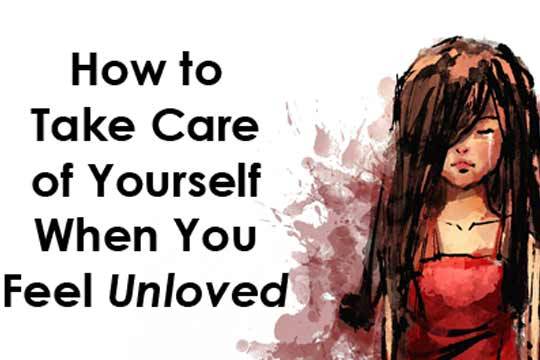Helene Lerner's Blog, page 9
July 11, 2016
5 Comebacks For Dealing With Sexism At Work

While overt sexual harassment still exists in today's workplace, many women are forced to deal with the more subtle and nuanced forms of sexism on an all too regular basis. Unfortunately, there are no easy answers on how to combat sexism at work; however, the next time you face gender-workplace bias, try one of these five comebacks:
Ask a clarifying question: All too often people are not expecting you to ask them a question after they have made a sexist remark. The sad part is they may not even be aware that their comment towards you was demeaning. So, in a calm and neutral tone, you can ask: "What did you mean? I'm not sure I understand what you just said." This strategy forces the person to explain what they meant, helping to raise their awareness and causing them to think about what they said. In essence, you disarm them before they get any further into a sexist rant.
Be direct and firm: While you have to judge the situation and know how safe it will be, when you can directly point out your colleague's sexism, then do just that. You can inform your co-worker that they are stereotyping women, explain why their comment is sexist, and let them know you will not tolerate their behavior. Educating others is a critical step in dismantling the patriarchy, and can have a beneficial effect for you as well as the other women in your office.
Switch the compliment: A sexist remark can be disguised as a compliment, which can leave you feeling a bit confused and make it challenging for the other person to understand why their comment was sexist. After all, they just gave you what seemingly appears to be a compliment. Well, one way to delineate is to ask yourself if that same compliment would be directed towards a man. For instance, would someone say to a man, "Wow I'm pleasantly surprised you did such a great job with figuring out those numbers, Bob." Probably not. So, when one of your male colleagues disguises his sexism in a compliment, reverse the compliment and see how that lands. That will point out his sexism, and, you will not feel like you are overreacting or being overly sensitive.
Don't entertain sexist humor: All too often sexism is propagated through what seems like good ole' harmless fun. There is nothing funny about sexism, which is demoralizing and detrimental in the workplace. Sexist jokes contribute to and foster a workplace environment that tolerates discrimination against women. By not laughing at sexist jokes, you make it clear that there is nothing benign or harmless in subscribing to stereotypes that promote gender bias.
Quietly document what is happening: If you find yourself in a situation where you are being harassed, you have every right to seek help. Right from the beginning, document and keep track of what was said to you, the date and time it happened, and note if anyone else was present. If someone is harassing you, that person is breaking the law. While no one wants to be in the position of reporting a co-worker, colleague, or supervisor, you have a right to work in an environment that is free of sexual harassment. So, if you decide to go the route of reporting the harassment, it is important to have clear documentation.
[image error]
- Cynthia Santiago, empowerment coach and founder of Latina Wellness
July 8, 2016
6 Things You Should do Before Bedtime

A good night’s sleep is crucial for success. The National Sleep Foundation recommends 7-9 hours for adults. However, it can be difficult to really feel rested, especially if you have a lot on your mind. Try these tips to improve your ability to sleep soundly and wake up refreshed and ready to take on the day.
To rest easy:
Avoid long naps: Even if you’re exhausted during the day, it’s not smart to drop everything and snooze for 2 hours. According to Mayo Clinic, the optimal amount of time to nap is 10 to 30 minutes during the midafternoon. These cat naps are all you really need to recharge your batteries.
“Put the house to rest”: Take a quick survey of your home. Make sure there are no little chores left undone that might keep you up thinking during the night. For example, if you left your dirty dishes in the sink, clean them before bed instead of worrying about completing the task in the morning.
Have a bedtime ritual: It can take a while to fall asleep if you’re still feeling wide awake. Try taking a warm bath or reading for an hour before bed. These types of relaxing activities help ease your body into sleep mode.
To wake up ready to go:
Plan: Figure out what would help you get going in the morning. Maybe you want to have your lunch packed ahead of time or pick out tomorrow’s outfit. Accomplishing these little tasks at night can make the next morning run smoother.
Reflect on your day: Think about what you’ve done that day. It can help to write down a few notes about what you’re grateful for, what you’ve accomplished, or what you want to achieve in the day ahead.
Envision success tomorrow: This can be especially helpful if you’re going through a challenging time. Close your eyes and picture something amazing happening to you tomorrow. Positive thoughts often lead to positive outcomes.
- Barbara Bent
4 Ways to Handle Emotional Pain

Relationships can be difficult--whether it is dealing with a significant other, child, co-worker or friend--the potential to share the "best of times," and "the worst of times" is there. When things turn sour, or you suffer a loss, or tragedy strikes--it is difficult to deal with the emotional pain that surfaces. Here are some tips that may prove helpful.
1. Acceptance is key. Don't deny the pain; that will create all sorts of problems. If you try to push it down, it will pop up at a time you'd least expect it to. Accept that you will be hurting for a while, that way, you can prepare yourself by prioritizing tasks and taking on only responsibilities that you have to.
2. Acknowledge your courage. When we are engulfed by pain, facing it can feel very lonely. It's hard to think about anyone else's problems when you are in the throws of it. Sometimes it helps to realize that everyone has their own form of challenges and you are not unique. Other people seem to get through it, and you will too.
3. There is a beginning, a middle, and an end. It will not hurt as much all the time. When the wound is new that hurts the most. In time, it won't hurt quite as much. For example, when one is grieving a loss, after a certain point, there are waves of grief. It is not one way all the time.
4. Put yourself in “intensive self-care." We take care of everyone else, and put ourselves last on the list too often. When you are in emotional pain, treat the "little girl" in you the way you would treat your own daughter. Be extra good to her. Don't be too demanding. Hear how she is really feeling.
5. Dig into your spirituality. Go deep, you need a sense of something greater than the pain. You need to walk with faith and remember that it will not always feel as bad as it does.
5 Reasons to Stay Away from Immature Men

Women put so much energy into finding a good man. Sadly, a lot of these “men” are more like children. Everyone has their own issues, but you shouldn’t waste your time on a man with the emotional maturity of an adolescent. Remember, you can’t change a man, especially one who’s immature:
He can’t commit: His immature mind sees the world differently. The things that matter most to you, like loyalty and honesty, aren’t on the top of his list. This type of behavior can develop into trust issues for you, making it harder to open up to (better) relationships down the road.
He thrives on drama: Every relationship has its share of hard times, but this type of guy really loves to stir the pot. It’s emotionally taxing, especially if you’re busy trying to balance work, friends, and family along with the relationship. This emotional roller coaster can easily wear you down--not worth it.
He wants what’s convenient: He’ll be loving and pay attention to you--on his time. If you find yourself always available for him while he’s not there for you, then there’s a problem. If you’re not around, he is harder to reach. Even though relationships aren’t 50/50, there’s something to be said for a “man” who only wants to play by his rules.
He lashes out instead of listens: An immature man will never understand what’s really going on. Maybe he actually has the mind of a child or maybe he just doesn’t care to take the time to understand you. Instead of trying to solve the problem, he thinks you’re personally attacking him. So instead of resolving the issue, the conversation turns into an apology from you for “hurting his feelings.”
You can do better and you KNOW it: The fact that you’ve labeled him “immature” says it all. If you can spot the ways he acts childish, then you should go ahead and look elsewhere--he doesn’t deserve you. Focus your energy on building close friendships with emotionally mature men, even if it takes more time. It’ll be worth it in the long run.
- Barbara Bent
How to Take Care of Yourself When You Feel Unloved

Support and recognition from our loved ones is important. Whether it’s a pat on the back or a shoulder to cry on, these subtle signs show us that we’re surrounded by people who care. So how can we cope when we feel slighted by our friends, family or significant others don’t show up for us and we feel unloved?
When you feel unloved by friends:
No matter how hard you try at important, you never seem to get the attention you need from your friends. Maybe they don’t acknowledge your triumphs or they only talk about themselves. It’s natural to yearn for recognition, but your happiness shouldn’t rely on their acknowledgment. Take a look at why you feel unloved. Can it be because you’re expecting too much from the other person? “Focus on what you are doing instead of what’s being done to you,” says Dr. Loretta Breuning, an expert on mammal behavior. By giving yourself credit on a daily basis, the sting of neglect seems to diminish. If you feel comfortable, talk with them about what you’re feeling and see if you can reach a compromise. After all, if they’re your true friends, they will care about you and want you to feel good.
When you feel unloved by family:
You’ve been with your family for a long time and they’re supposed to be supportive of you. But not all families are like that. When you’re with them and you feel unloved, take a moment to pause and see what’s really going on. Have you been in this situation with that parent/sibling before, perhaps when you were a child? With this awareness, you are more apt to work through the negative emotions. You may feel like speaking up, so do it. If these feelings of unworthiness are very strong, you may want to seek help from a counselor or therapist.
When you feel unloved by your partner:
They’re supposed to be your biggest fan, but maybe they’re not acting that way. A bond with a partner is different from any other. When feelings come up, be candid and talk about what’s going on. Give an example of when you feel they’re not showing up for you. Offer some things you could do together that might be uplifting as a possible solution. This is one small way to build a stronger bond between the two of you.
Our community’s recommendations:
1. “I pamper myself, read a book, give myself a home spa day, I pray and meditate, get some fresh air...I try to center myself and show myself love.”- Heather
2. “Volunteer”- Teri
3. “I write down my feelings, compose a poem out of it, make a few people read it so they can feel it by words I couldn’t speak. The feeling of being unloved is not uncommon these days so one must always give time for self love…”-Simran
4. “Go and take a walk at the beach, alone, reevaluate. Scream get all of the negative feelings off my chest. Clear my system…”- Kay
5. “[Eat] crab legs and white wine while watching movies.”-Chantel
- Barbara Bent
7 Habits of a Happy Brain

1. Remember that you have power to build new pathways in your brain. (But it takes more persistence and courage than you may expect, because your old pathways are already well developed and connected to your pleasure and pain centers.)
2. Remind yourself that your frustrations are just electricity flowing down the path of least resistance in your brain. (You can give your electricity a new place to flow if you focus on a positive new choice every day for 45 days without fail.)
3. You can turn on the excitement of dopamine by taking a step toward an expected reward. (Of course rewards are unpredictable in the real world, but you can always adjust your expectations and take another step.)
4. You can enjoy the safe feeling of oxytocin by taking small steps toward social trust, often. (The mammal brain rewards you with a good feeling when you create social trust, but it makes careful choices because it’s not always safe to trust.)
5. You can stimulate the nice feeling of serotonin by focusing on what you have instead of what you lack. (The mammal brain makes social comparisons because that promotes survival in the state of nature, but you can find ways to feel good about yourself without putting others down.)
6. Laughing triggers the joy of endorphin, so make time in your life for laughter. (You may not laugh at what your friends think is funny, so let your own sense of humor be your guide.)
7. Stop what you’re doing when your cortisol turns on, because it makes everything you do look bleak. (Cortisol is designed to alert you to potential threats, so you will see plenty of threats until you give your body a couple of hours to metabolize it.)
Learn more from Habits of a Happy Brain: Retrain Your Brain to Boost Your Serotonin, Dopamine, Oxytocin, & Endorphin Levels

- Dr. Loretta Breuning is the founder of InnerMammalInstitute.org and author of Habits of a Happy Brain: Retrain Your Brain to Boost Your Serotonin, Dopamine, Oxytocin, & Endorphin Levels
Habits of Ungrateful People (and How to Avoid Them)

You know them, they are all around us--those people who are always complaining and seeing the glass as half empty, rather than half full. We may have to deal with them, but we certainly don't want to be around them if we don't have to. When we leave their presence we can feel the repercussions--we may feel tired or depressed. What are their habits? And when we see them in ourselves, how can we change the channel? Read on.
They never feel satisfied.
Nothing fills them, even if they achieve a goal or get something they want. It seems like they have an insatiable appetite. They just never feel full.
Do the Opposite: Appreciate what you have and the small things people do during the day--these small gestures can fill you up.
They feel entitled.
They usually have had it tough early on. Perhaps they came from an abusive family, or they went through something traumatic which wasn't handled right. They look for the payback BIG TIME. When you are in their company, you feel a sense that you "owe" them something, and you can't quite put a finger on what that is.
Do the Opposite: You are on equal footing with people; remember that. No one is better or worse than you.
They are bitter.
Anger is an emotion that they easily go to. They are either churning about something that happened in the past (resenting how they were treated), or finding fault with what's going on in the present. You feel like you have to watch your every word when you are around them.
Do the Opposite: Compassion is something everyone needs more of. Try to empathize with people more by putting yourself in their shoes.
They play the role of the "victim."
There is no one, in their opinion, who has had it worse off than them. And they can trade you story after story. If you seriously listen to their scenarios, and try to help, you can't. They simply don't want to change, no matter what you do.
Do the Opposite: Turn your weaknesses into strengths. Even if you had a difficult time early on, you have survived, learned some lessons, and are poised to be successful. Difficult experiences grow our inner muscles.
They really don't care about you.
These people are so wrapped up in themselves, there is no room for your feelings and needs. They are too busy thinking about themselves and their next moves.
Do the Opposite: Never stoop to their level--instead of being selfish, be gracious. You'll feel better about yourself if you are, even if it doesn't make one bit of difference to them.
July 7, 2016
Why Crying is NOT a Weakness

Crying is often seen as a sign of weakness, but is it really? Even if you’re crying over something that seems like “nothing,” there’s more to it. There are several reasons why it’s good to let the tears flow:
It’s a healthy outlet: Crying is much better than bottling up your emotions, it’s cathartic. In the long run, it’s better to cry when you need to rather than let the feelings simmer. The experience can also be reflective so that you can think more clearly after.
Crying releases toxins and boosts your mood: Dr. William Frey, a biochemist at the Ramsey Medical Center in Minneapolis, found that “emotional” tears contain stress hormones and other toxins. This means that when you cry, you’re getting that out of your body. While it’s releasing the bad stuff, it makes you feel better at the same time.
It shows strength: The notion that “men don’t cry” or “big girls don’t cry” shouldn’t be taken seriously. Rather, crying breaks down barriers and lets people know the authentic you. This is more impressive, according to Dr. Frey, than putting on some kind of front and never crying at all.
It’s our human instinct: Studies from the American Psychological Association show that infants’ tears help communicate their needs. This can happen for adults, too. Another study showed that crying can be a key to communication, citing an experiment where respondents were more willing to provide support when they saw people crying compared to when people weren’t crying.
Crying at work?: There is a strong difference of opinion on this. Dr. Laura Safar, Director of Neuropsychiatry Clinical Services and Education at Brigham and Women’s Hospitals says, “there are no absolute answers to this question, and it’s not just about gender. For anyone, man or woman, the answer would depend on context and degree. Sobbing uncontrollably in response to a minor mishap? Not OK, most times. But the timely shedding of a tear or two in front of a trusted colleague, reminding us that a good emotional range is part of humans’ strength? Probably fine, go ahead.”
- Barbara Bent
How to (Re)Build Trust with Your Partner

Trust is the glue that holds relationships together. Without trust, we may find ourselves lost and vulnerable. There’s a whole spectrum of trust -- from when you’re building a new relationship to when you’re working to move forward after a betrayal. These things seem to work whether building or rebuilding a relationship*:
Don’t be quick to judge: It’s important for your partner to feel comfortable sharing their feelings with you, especially when you’re starting a new relationship. When your partner comes to you about an issue in their life, listen to them and remind them of your support. If you don’t completely agree, be honest and don’t be hostile. This will show them that they can be open with you.
Realize that no one is perfect: Your insecurities will come up. To strengthen a blossoming relationship, acknowledge your strengths and your weaknesses. If your partner can’t accept them, then they’re probably not right for you. You deserve to find someone who you can confide in, and let you know some of their vulnerabilities.
Don’t keep dirty little secrets: White lies can add up (especially if you’ve been betrayed in the past). They may start out trivial, but can build over time. Eventually, you may find yourself hiding bigger secrets that you really should tell the other person. Even if you think it’s too painful to tell them now, everyone will be better off in the long run. Keep open lines of communication throughout your relationship.
Acknowledge your slip-ups: In order to move past hurt feelings in any stage of a relationship, it’s important to take responsibility for your part. It doesn’t work just to promise someone you won’t hurt them again. You must follow through with that promise --actions speak louder than words.
Spend time apart: If conflict arises, it may be necessary to separate to see how strong the relationship really is. If the relationship is built on a solid foundation, it will stand the test of time.
Be open to compromise: Relationships, both new and long-term, are hardly 50/50. There will inevitably be times when you feel like your partner isn’t pulling their weight and vice versa. When you compromise, both sides come out of it reasonably content, and you get to understand what is really important to the other person.
*Every relationship is different depending upon the circumstances. Some of the above tips may help, some may not.
- Barbara Bent
5 Ways to Deal with Difficult People

There is no question that the world is full of people with challenging personalities, who annoy you, frustrate you, and fray your nerves. While you absolutely cannot change or control those people, you certainly can control your reaction and response in dealing with them. Consider using these empowering strategies for handling difficult people:
Stay above the fray: It can be all too easy to allow yourself to be pulled down by an unreasonable person. This individual is nasty or mean, and suddenly you find yourself responding in kind. Instead, stay clear and firm about who you want to be in the situation. For instance, if maintaining self-control is important to you, remain steadfast in your response despite the other person's behavior. This reaction provides an opportunity for you to evaluate what is happening and make a conscious decision about your next move.
Identify your triggers: We all have past experiences from our lives that can trigger an emotional response when we are confronted with unpleasant situations. When dealing with difficult people, it is important to consider what aspect of that person's personality or behavior is triggering an unresolved issue in your life. Once you are aware of and understand your emotional triggers, you can manage them and keep yourself from having an undesired response to anyone that may be demonstrating behaviors that cause your triggers.
Practice before the encounter: When you know you are going into an encounter with a difficult person, prepare yourself by practicing how you want to deal with the situation. Role-playing is a valuable teaching tool and will give you the opportunity to practice how you want to handle yourself and help you develop your responses. When you role-play and practice before the encounter, your body and brain hold muscle memory, and you will gain experience in handling the difficult person.
Speak up: Many times when we are forced to deal with difficult people, we stay silent about how we feel, causing us to feel helpless and resentful. You can confront a difficult person and eliminate these feelings by voicing your perspective in a respectful and calm tone. In speaking up, you will feel empowered, and you may provide an alternate view for this person to consider.
Don't take it personally: When someone is behaving poorly or treating others badly, it is a direct reflection on them and has little to with you. In fact, troublesome people are not exuding joy and love. Their behavior is an indicator of their lack of personal happiness. If you keep this perspective in mind, it becomes much easier to understand that this person is trying to draw you into their drama. Instead of being pulled in, you get to make a conscious choice not to participate in this dynamic.

- Cynthia Santiago, empowerment coach and founder of Latina Wellness
Helene Lerner's Blog
- Helene Lerner's profile
- 9 followers



